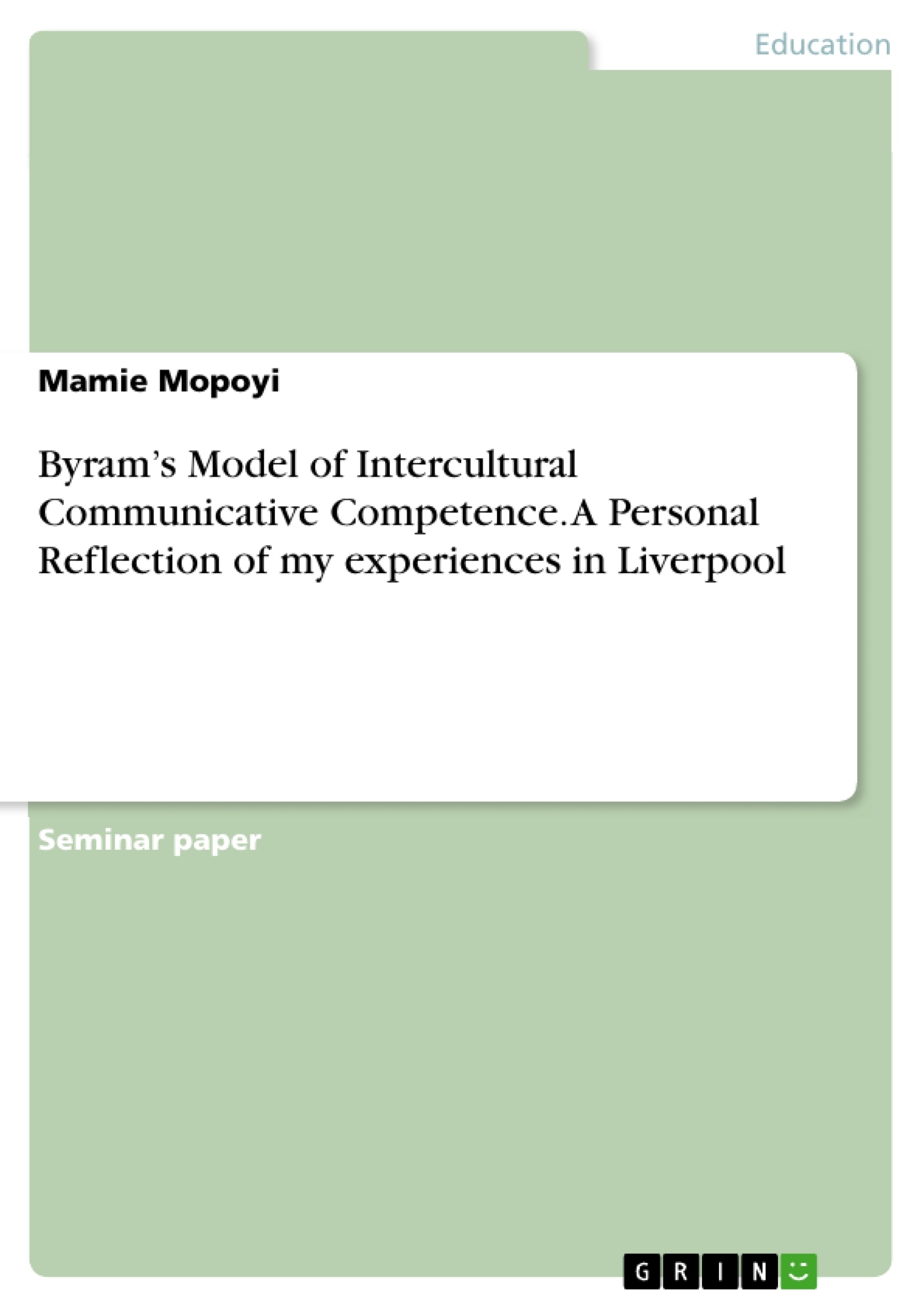The following report gives an insight into my experiences and my process of developing intercultural communicative competences. It is without a doubt safe to assume that a stay abroad is a life-changing experience. Choosing to stay abroad is a great opportunity to practice one's language skills and develop intercultural competences. Whenever I thought of my stay abroad, I was intrigued by the idea of discovering new cultures and exploring new places. For someone who is attached to the familiar, the sheer thought of leaving one’s comfort zone might be the biggest obstacle in this journey.
And still, each year, thousands of people flock to other parts of the world, perhaps to gain awareness of different people, cultures, and places. As professor O’Dowd states, “the (d)irect contact with members of the target culture can offer opportunities for developing the skills and attitudes of ICC, even though it’s not proven that such a contact will easily lead to intercultural learning.” Nevertheless, these people come with a particular set of attitudes and stereotypes regarding the different people and cultures of the countries.
Therefore it is crucial to know how the perception can change through interaction with others. According to this, it can be said that offering broader access to cultures might enable people to mingle in these cultures. This requires a certain finesse and knowledge. Otherwise, a welcoming encounter of different people and cultures cannot be assured, but rather a clash of different cultures. Therefore, “language learning cannot be separated from culture learning as language manifests many of the social actions of a society and expresses the values and beliefs which underlie these actions”. Michael Byram’s model of Intercultural Communicative Competence, in short, ICC, can serve as an explanatory model to trace my development during my stay abroad. Mind you, although I spent more than three months in Liverpool, I cannot draw fixed conclusions about certain things. Therefore, my knowledge and attitudes might differ compared to a person who spent a year abroad.
Inhaltsverzeichnis (Table of Contents)
- Introduction.
- Byram's Model of Intercultural Communicative Competence...
- Liverpool – Expectations and Experiences .
- Liverpool- Expectations......
- Liverpool- Experiences....
- Critical reflection of my experiences in Liverpool
- Conclusion........
- References.
Zielsetzung und Themenschwerpunkte (Objectives and Key Themes)
This report explores the author's personal experiences and development of intercultural communicative competence during a stay abroad in Liverpool. The report examines the author's expectations and experiences, drawing on Michael Byram's model of Intercultural Communicative Competence (ICC) as a framework for analysis. The author investigates whether their expectations for the stay abroad aligned with reality, and critically reflects on their development and experiences, ultimately examining the impact of the stay on their teaching career.
- The development of intercultural communicative competence during a stay abroad
- The applicability of Michael Byram's model of ICC to real-world experiences
- The importance of "decentring" from one's own perspective to embrace cultural diversity
- The role of knowledge, skills, and attitudes in intercultural communication
- The impact of a stay abroad on teaching career development
Zusammenfassung der Kapitel (Chapter Summaries)
The introduction provides an overview of the report's objectives and outlines the author's personal motivation for undertaking a stay abroad. The second chapter introduces Byram's model of ICC, outlining its five key components: attitudes, knowledge, interpreting and relating, skills of discovery and interaction, and critical cultural awareness. The chapter emphasizes the importance of understanding and communicating across cultural divisions and the need to move beyond a focus on grammatical rules in language learning.
The third chapter explores the author's expectations and experiences in Liverpool. It contrasts initial expectations with actual experiences, highlighting instances where these expectations were met or challenged. The chapter sets the stage for the critical reflection in the following chapter.
Schlüsselwörter (Keywords)
The key words and focus topics of this text include: intercultural communicative competence, Michael Byram, language learning, cultural awareness, cultural diversity, expectations vs. experiences, critical reflection, teaching career development, Liverpool.
- Citar trabajo
- Mamie Mopoyi (Autor), 2020, Byram’s Model of Intercultural Communicative Competence. A Personal Reflection of my experiences in Liverpool, Múnich, GRIN Verlag, https://www.grin.com/document/1130347



